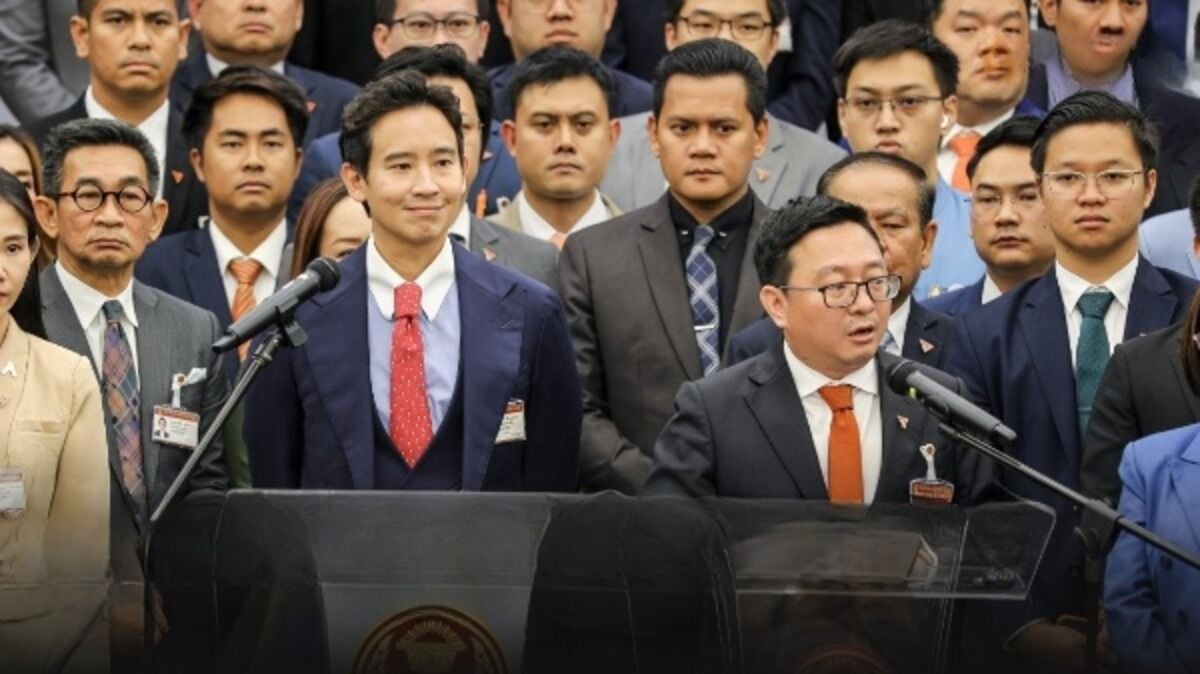Court snubs Move Forward Party’s plea: Verdict moved to August 7

The Constitutional Court has thrown out the opposition Move Forward Party (MFP)‘s request for an inquiry, claiming it has ample evidence to make a ruling. The Election Commission (EC) has been pushing for the party’s dissolution and a 10-year political ban on its executive committee, due to their election campaign advocating for the amendment of the lèse majesté law.
Despite dismissing the inquiry request, the court will still allow the MFP and the EC to present their closing statements on July 24. The final verdict is set to be delivered on August 7 at 3pm.
The MFP blasted the EC for its rapid push for dissolution without giving the party a chance to defend itself. They argue that the EC’s reliance on the court’s January 31 ruling, which ordered the party and its former leader Pita Limjaroenrat to halt activities aimed at amending the lèse majesté law, is inapplicable to the current case.
Back in January, the court deemed any efforts to amend the lèse majesté law as an attempt to overthrow the constitutional monarchy, a charge that the MFP insists is a misuse of judicial power, reported Thai PBS World.
ORIGINAL STORY: Election Commission defends move to dissolve MFP
The Election Commission (EC) defended its move to seek the dissolution of the opposition Move Forward Party (MFP) due to its support for revising the lese majeste law, asserting that the move adhered to proper legal procedures under the organic law on political parties.
EC member Pakorn Mahannop clarified that the commission’s action was based on Section 92, not Section 93, of the organic law, which authorises the EC to request the Constitutional Court to disband the MFP without conducting an inquiry.
Pakorn highlighted the distinctions between the two sections. Section 92 of the 2018 Political Parties Act mandates that if credible evidence suggests a party has engaged in actions hostile to the constitutional monarchy, the EC must propose the party’s dissolution to the court without the need for an inquiry.
In contrast, Section 93 requires the EC to conduct a probe and allow the accused to respond to the allegations.
The EC felt compelled to clarify the matter after the Constitutional Court instructed it to submit further evidence in the dissolution case against the MFP. The main opposition party argued that the poll agency forwarded the case without any prior investigation.
Pakorn stated that the EC’s request for the dissolution of the Thai Raksachart Party before the 2019 election was also based on Section 92 of the political party law. The Constitutional Court accepted the petition and ruled to dissolve the TRC. He emphasised that the EC’s opinions on whether a political party should be dissolved are irrelevant.
“The EC can’t answer such a question. It can’t agree or can’t disagree. It’s obliged to respect the law and do what is required by the law. We follow and respect the Constitutional Court’s decision.”
When questioned about EC Chair Ittiporn Boonpracong’s remarks in a video clip suggesting that the EC did not follow legal steps, Pakorn urged considering the context of the chair’s remarks, rather than isolating a part of it.
Addressing the MFP’s claim that Section 93 also applied to its case, Pakorn reiterated that the EC found the case to fall under Section 92.
The EC’s decision to request the Constitutional Court to disband the MFP came after the court ruled on January 31 that the MFP’s ongoing efforts to amend Section 112 of the Criminal Code, the lese majeste law, indicated an intention to undermine the constitutional monarchy, reported Bangkok Post.
Latest Thailand News
Follow The Thaiger on Google News:


























